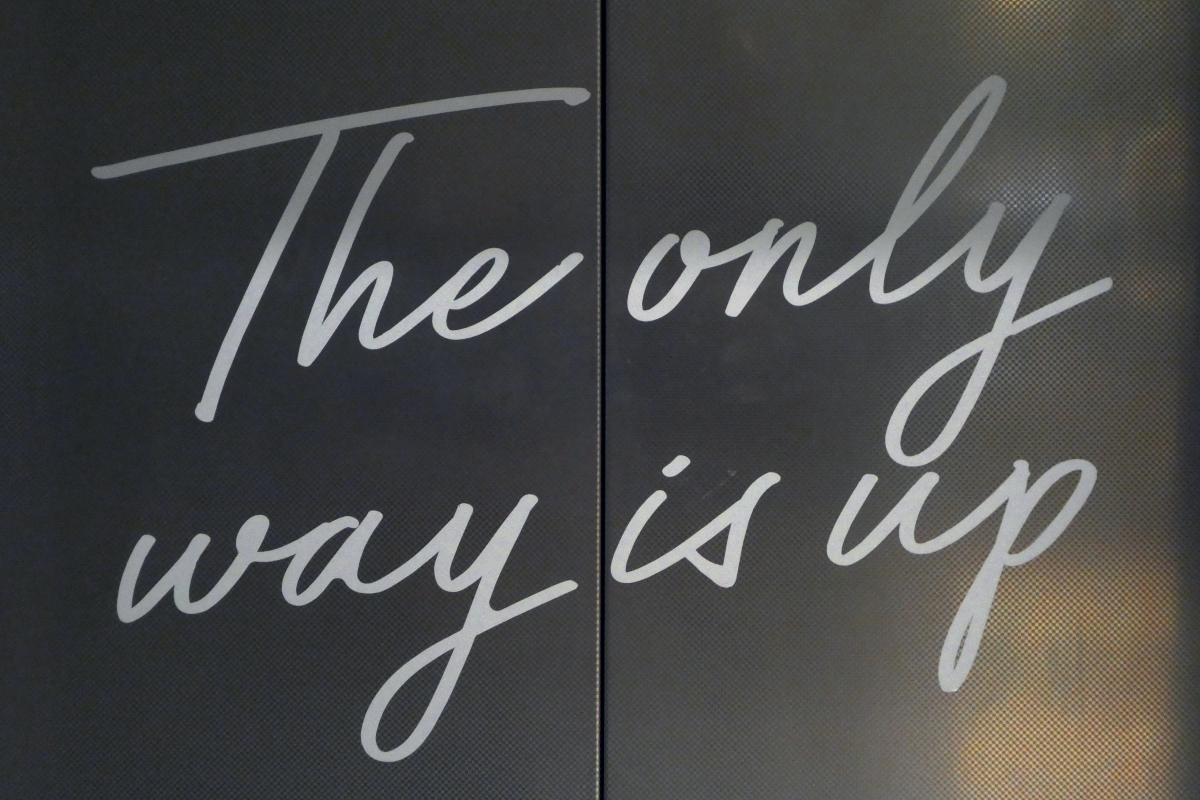
How do I stay motivated? This is one of the most common questions I’m asked.
Most of us feel highly motivated when we start something new — a new workout program, a new diet.
But inevitably, we reach a point where we’re just not that into it. The novelty wears off, our schedule changes, we get a rough night of sleep… you name it.
We might even beat ourselves up, thinking, “Other people are motivated all the time. What’s wrong with me?”
The truth is, there’s nothing wrong with you. Accomplishing big goals has very little to do with feeling motivated all the time.
Advertisement
Motivation is what gets you started. After that, it’s about doing what needs to be done until you eventually get where you want to be.
Motivation may return periodically. But it’s never guaranteed. It’s like any other emotion (happiness, sadness, etc) and will come and go throughout your journey. You can take advantage of it while it’s around but you can not rely on it for success.
So, if you can’t rely on motivation to always be there, what can you do to ensure you remain consistent and focused during your journey?
Here are four strategies that can help!
Have a deep reason and a strong “why”.
Advertisement
Your “why” for embarking on your journey is what will keep you going on the tough days.
Each of us needs a “why” that cuts directly to our core — something we can turn to on the days where we just don’t want to complete that workout or when it would be easier to get fast food than cook at home.
When you’re determining your deepest “why”, I have an exercise you can use. It’s called The “5 Whys”, and it was originally used by the Toyota Motor Corporation.
It’s very simple. When you want to accomplish something, you ask one “why.” “Why do I want to accomplish this?”
Then, whatever answer you come up with, ask why again. And so on, five times.
Advertisement
Be really honest with your responses. When you reach that final “why”, you might be surprised at the answer!
Here is a real-life example from a WAG client. She stated that her goal was to lose 25 pounds and run her first half-marathon.
Why do you want to accomplish this?
Because I feel heavy and out-of-shape right now. If I lost 25 pounds and ran a half marathon, I’d feel confident again.
Why do you want to feel confident again?
Advertisement
Because I’ve spent the last decade hiding my body in loose-fitting clothes and avoiding social situations where people might judge me. I want to get out there and stop hiding.
Why do you want to stop hiding?
Because I’m ready to date. I’ve avoided it for too long and I’d love to meet a partner who has similar interests as me!
You get the idea! Now it’s your turn. What do you want to achieve, and why? Write it down!
You don’t need motivation — you need systems.
Advertisement
Let’s dive into the next thing you’ll need to stay consistent on your journey (without relying on motivation): systems.
Systems (you can also think of systems as habits!) help you prioritize what to do and when to do it. They also remove a lot of the effort and willpower you think are required to get things done.
In this WAG Podcast episode, my husband, Michael, and I talk about how we set up systems for success, including using “keystone habits” that lead us to stick with other habits.You can also follow along with this episode to learn to set up your habits to be on autopilot so you don’t have to consciously think about them!
Don’t let feelings drive behavior.
When you’re tired or sad, do you ever feel like you should do tired, sad things? This is totally normal. And of course, it’s critical to honor and express your feelings because it’s a release and helps others understand what you’re going through.
Advertisement
But when it comes to sticking with a nutrition program, letting your feelings drive your decisions can get you in trouble. For example, if you had a bad day at work and let those feelings drive you toward choosing chocolate for dinner, that may not be conducive to your goals!
Here is what I recommend instead: notice and accept your feelings in the same way that you can notice a cloud passing by overhead.
Our moment-to-moment feelings don’t have to determine who we are or what we choose to do. Simply knowing this can make it easier to carry on when we don’t feel like it.
Have a growth mindset and see life as a series of skills you can learn.
Rather than beating yourself up about the fact that you haven’t yet reached your goals, try this strategy: add the word “yet” to the end of your sentences.
Advertisement
For example:
“I haven’t reached my weight goal yet.”
“I haven’t run a marathon yet.”
“I haven’t gotten that promotion yet.”
Adding the word “yet” to these sentences gives them a sense of resilience. Where you are in life right now doesn’t dictate where you’ll be in 3 months, 6 months, or a year.
Resilient people don’t just “try harder” or “have more willpower”. Resilient people see any process as a skill that can be developed.
You may have also heard of a “Growth vs. Fixed mindset”.
Advertisement
People who have a growth mindset believe their talents can be developed through hard work. People with a fixed mindset believe their talents are innate gifts.
Research suggests that people with a growth mindset achieve more than those with a fixed mindset because they worry less about looking smart and put more energy into learning.
Here are some examples:
- Fixed mindset: “I’m not a good runner.”
- Growth mindset: “Running has been really challenging for me.”
- Fixed mindset: “I’ll never be able to follow my nutrition plan on the weekend.”
- Growth mindset: “In the past, when I’ve tried to stick to my nutrition plan on the weekend, I didn’t have much success.”
What do you think – can you spot any ‘fixed mindset’ examples in yourself? How could you reframe your language towards a growth mindset?
I hope these tips help and show you that you don’t need to feel constantly motivated to achieve your goals. All you need is a deep “why”, powerful systems, resilience and a growth mindset.
Advertisement
Schedule a Free Intro Call
Working Against Gravity has led the macro tracking and health space for over a decade. Our team doesn’t just understand the science of nutrition—we’ve spent years mastering the art of tailoring it to fit your life. That means no cookie-cutter plans, just real strategies that have worked for over 30,000 people.
Schedule a free call with our team to learn how working with a 1-on-1 WAG coach will help you reach your goals.



